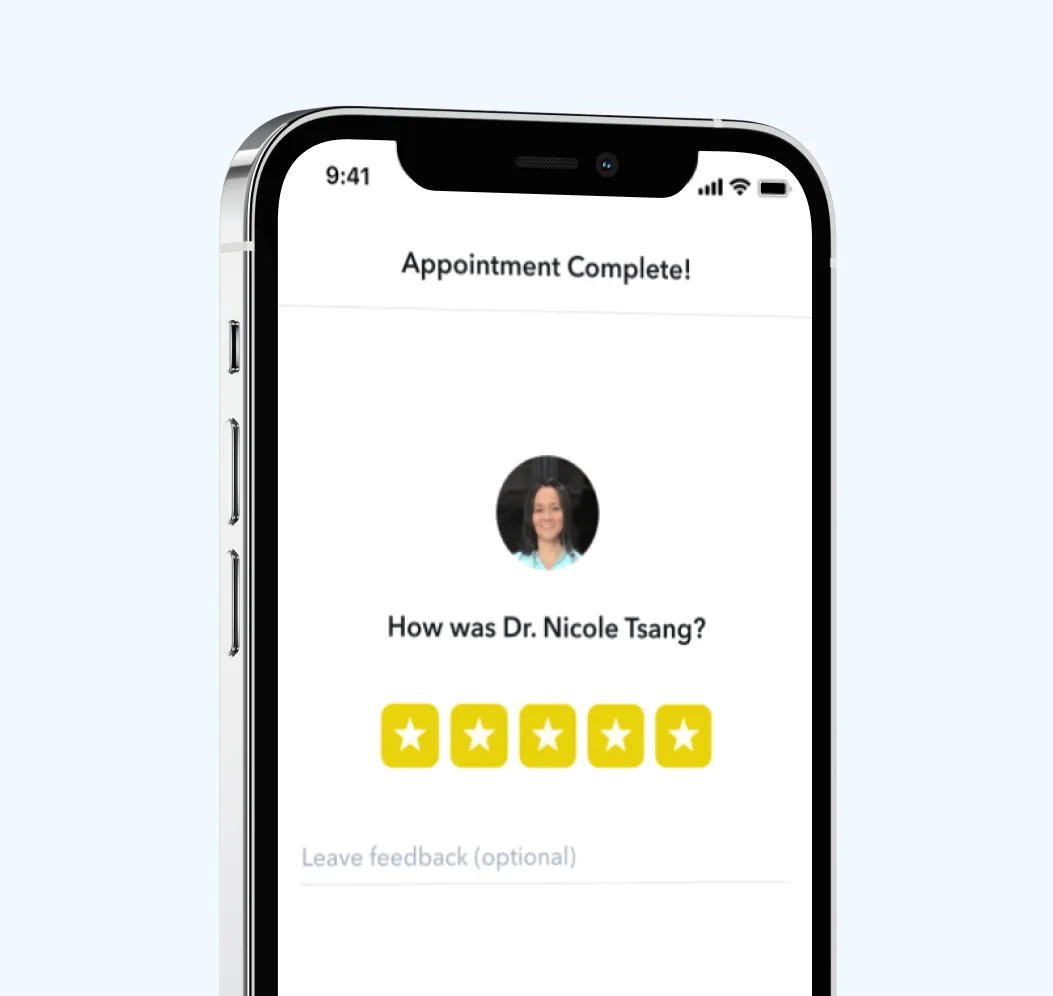All posts
What Is Hormone Replacement Therapy (HRT) for Menopause?

Circle Medical Staff
Oct 13, 2023
9 min

Menopause is a natural process that women experience at some point in their lives. However, that doesn’t mean the symptoms of menopause can’t be reduced through medical interventions like hormone replacement therapy (HRT). But is hormone replacement therapy the right choice for you? In this blog, we’ll break down the benefits and risks of HRT, so you have a better understanding of the options available to you. Read on to learn more, and book your appointment with Circle Medical today if you’re experiencing the symptoms of menopause.
A Brief Introduction
Menopause can cause a range of symptoms that impact the comfort of daily life. Thankfully, there are solutions to alleviate these symptoms and improve quality of life, especially when menopause symptoms first present. While hormone replacement therapy is one avenue for treatment, there are also alternative treatments that may suit you better. It’s best to speak with your health care provider so you can determine which treatment path is the best for your unique health needs. With that in mind, let’s dive into the ins and outs of hormone replacement therapy for menopause!
What Is Menopause?
Menopause is a natural time in life when a woman’s reproductive hormones are declining, typically during their 40s and 50s. It is typically diagnosed when a woman has gone 12 months since their last period. This hormonal shift can result in a range of symptoms that can cause physical and emotional distress. While menopause is a natural process, it doesn’t mean that there isn’t treatment available. Treatment focuses on symptom relief, depending on the individual symptoms a woman is experiencing.
Menopause can also occur before a woman’s 40s or 50s and can happen as early as someone’s 30s. Typically, women who smoke and who are underweight may experience menopause sooner in life, while women who are overweight may experience menopause later in life.
Menopause is usually preceded by perimenopause. Perimenopause is a transition phase between a woman’s normal menstrual cycle and the phase of life known as menopause. Perimenopause is characterized by a reduction in the supply of eggs in a woman’s ovaries, along with more irregular menstrual cycles.
Other reasons menopause may be brought on can include premature menopause or surgical menopause. Premature menopause can be brought on by factors like smoking, radiation exposure, chemotherapy drugs and more. Surgical menopause can occur after surgeries that remove one or both ovaries or surgeries that impact the blood supply of the ovaries.
Common Menopausal Symptoms
Menopause symptoms can vary by individual, but some of the most common symptoms include:
- Hot flashes
- Night sweats
- Mood swings
- Vaginal dryness and atrophy
- Sleep disturbances
- Weight gain
- Changes in sex drive
- Hair growth
- Cardiac effects
- Relaxation of pelvic muscles
These symptoms can be challenging to manage, but with the right knowledge and support, you can find relief and improve your quality of life.
Hormone Replacement Therapy (HRT) for Women
If you’re experiencing symptoms of menopause or perimenopause, your health care provider may recommend hormone replacement therapy. HRT is a treatment option that involves taking medications that contain hormones to supplement the declining levels of estrogen and progesterone in the body. Replacing these hormones can effectively reduce symptoms like hot flashes, night sweats and mood swings. However, it’s important to note that HRT isn’t for everyone and that you will need to consult your primary care provider to determine if it’s right for you.
Different Types
When it comes to hormone replacement therapy for menopause, there are different types your health care provider may recommend. The most common type of HRT is taking a combination of the hormones estrogen and progesterone. If your menopause was brought on naturally and there are no other health concerns, then this is the type your provider may recommend.
Estrogen therapy is another type of HRT, which involves taking estrogen alone. This is typically recommended for women who have had a hysterectomy. There are also different forms of hormone therapy, such as pills, patches, creams and gels. Your primary care provider can help determine which is the best for you based on your needs and what you prefer.
What Are the Benefits?
If hormone replacement therapy is right for you, it can offer a range of benefits that reduce your menopause symptoms and improve your quality of life. These benefits include:
- Reduction or elimination of symptoms — The main purpose of hormone replacement therapy after menopause is to alleviate symptoms, and it can often effectively reduce or even eliminate hot flashes, night sweats, mood swings, vaginal dryness and more.
- Improved mood — Balancing hormone levels can sometimes result in improved mood in patients and feeling better overall.
- Reduced risk of various health complications — Hormone replacement therapy can have the additional benefit of reducing the risk of osteoporosis, breaking bones, tooth loss, colon cancer, joint pain and diabetes.
Overall, hormone therapy can often provide significant improvements in a woman’s physical and emotional well-being during menopause. However, the treatment isn’t without risks. Let’s discuss those next.
What Are the Risks?
Hormone therapy for menopause, like any medical treatment, does come with some potential risks. It’s important to be aware of these risks and discuss them with your health care provider before starting hormone therapy. These risks may include:
- Increased risk of endometrial cancer if you still have a uterus and don’t take progesterone along with estrogen
- Increased risk of breast cancer over time
- Increased risk of blood clots, stroke and heart disease
- Increased risk of gallbladder problems
Keep the risks of hormone therapy in mind when discussing your treatment with your health care provider. Depending on your health history, HRT may not be a viable treatment path for you. Your health care provider will be able to help determine this after assessing your medical history and symptoms.
Finding the Right Health Care Provider for You
Once you’ve decided to pursue online healthcare for anxiety, it’s time to find the right health care provider for you. It’s a good idea to do some more research and take your time to find someone who is the right fit. Make sure to choose a primary care clinic that has experience with anxiety and treating mental health concerns.
Options like Circle Medical offer primary care services for a variety of conditions, including anxiety. Circle Medical also offers both in-person and online care, making it easy to choose the care option you’re most comfortable with. Remember, you are your own advocate when it comes to receiving care. Never hesitate to ask questions, and don’t hesitate to switch providers if you feel uncomfortable or that your quality of care isn’t up to your standards.
Alternative Treatments
If you and your health care provider determine that hormone replacement therapy isn’t right for you, there are alternative treatment options that may provide you with some relief from your symptoms. These alternative treatment options may include:
- Lifestyle changes — Some women find that lifestyle changes such as exercise, a balanced diet, relaxation techniques and other modifications may help to reduce or manage symptoms like hot flashes and mood swings. Even if you’re on HRT, some of these lifestyle changes may help to further alleviate your menopause symptoms.
- Natural remedies — There are supplements and herbal treatments that may reduce the symptoms of menopause. However, it’s important to always discuss these treatments with your health care provider to see if they’re right for you. The purity and effectiveness of supplements aren’t as tightly regulated as medications, so it’s important to research and have medical supervision as you try alternate paths of treatment.
Remember, what may work for one person with menopause may not work for another. Some people have great results from HRT, while some find they prefer making lifestyle changes to mitigate their symptoms. You have choices when it comes to managing your menopause and finding the right treatment path is important for your overall health and well-being. The first step is to set up an appointment with your primary care provider so you can discuss your options and determine what steps you can take next.
Connect with a doctor or online provider
Your primary care provider will be able to help by officially diagnosing your menopause and developing a unique, tailored treatment plan specifically for your health needs and lifestyle. If you don’t currently have a primary care provider or if you’re looking to make a change, Circle Medical can help. Circle Medical offers both in-person and online telehealth services, so you can get treatment and care from the comfort of your own home.
Many are unaware that telehealth has progressed enough that you can receive essentially any primary care service without having to go to the doctor’s office. Clinics like Circle Medical allow you to meet with your provider, get a diagnosis, get a treatment plan and even get prescription medications like HRT if deemed medically appropriate. Interested in learning more?
Book an appointment with a Circle Medical telehealth provider today!
Circle Medical is a full-stack primary care clinic that offers in-person care visits and telehealth services. This allows you to get the most comprehensive healthcare services possible while also letting you customize your healthcare experience to fit your lifestyle. If you prefer the convenience of online care, you can do virtually everything through our app and telehealth services. If you prefer to come to in-person clinics to receive care, Circle Medical can help with that, too. Best of all, you can make an online same-day appointment to get started with your care right away. If you’re ready to get started on your wellness journey, book your appointment with a Circle Medical telehealth provider today!
Circle Medical Providers must meet all of the following standards:
-
Exceptionally qualified in their field
-
Board-certified
-
Deeply empathetic for patients
-
Follows evidence-based care guidelines
-
Embracing of diverse patient backgrounds
-
Impeccable record of previous care
400+ Primary Care Providers.
100% Confidence.
No matter which Provider you choose, you will be seen by a clinician who cares deeply about your health and wants to help you live your happiest, healthiest life.
Circle Medical Providers are held to an exceptionally high standard of compassionate, evidence-based care.
Book Appointment

